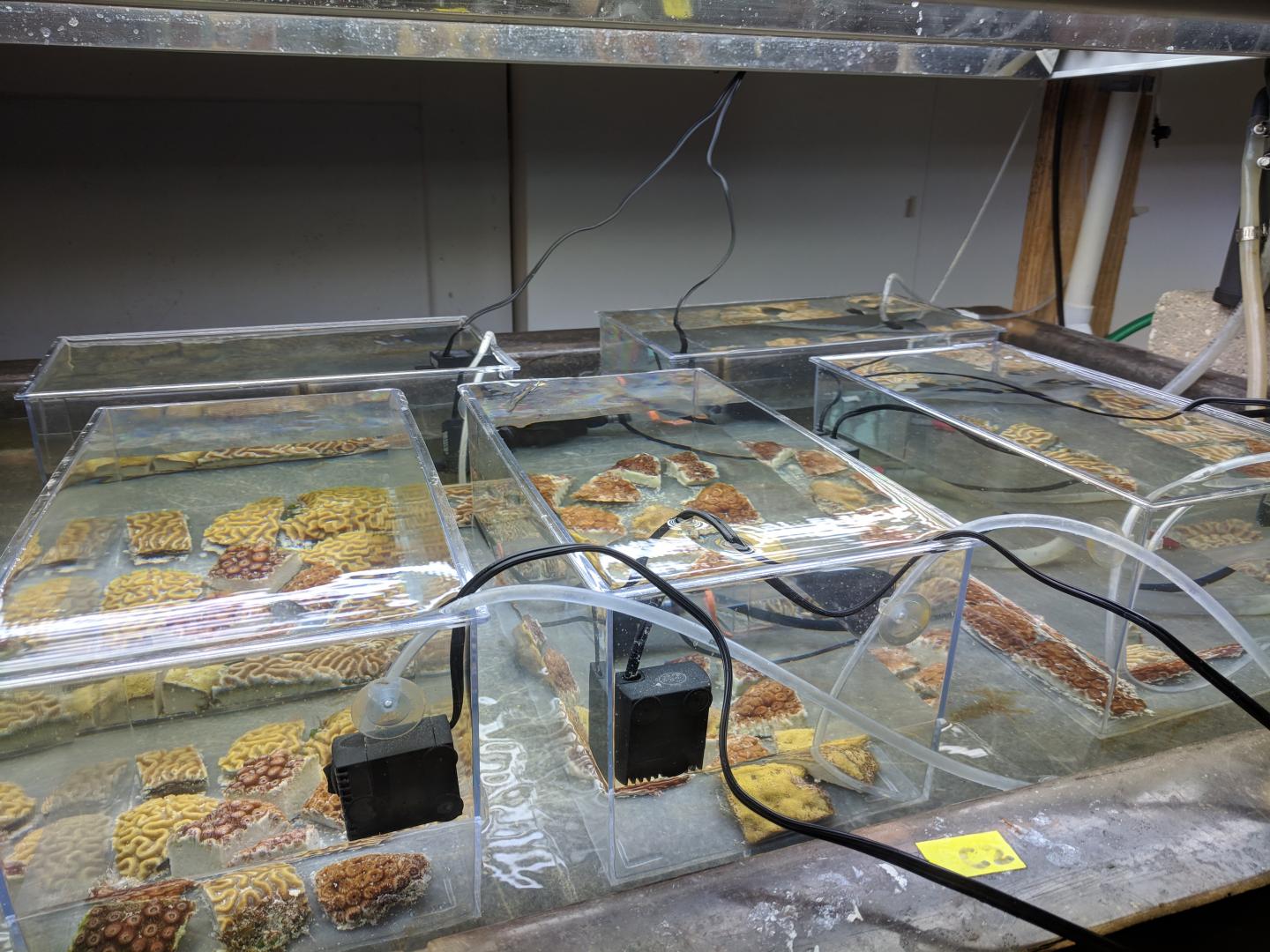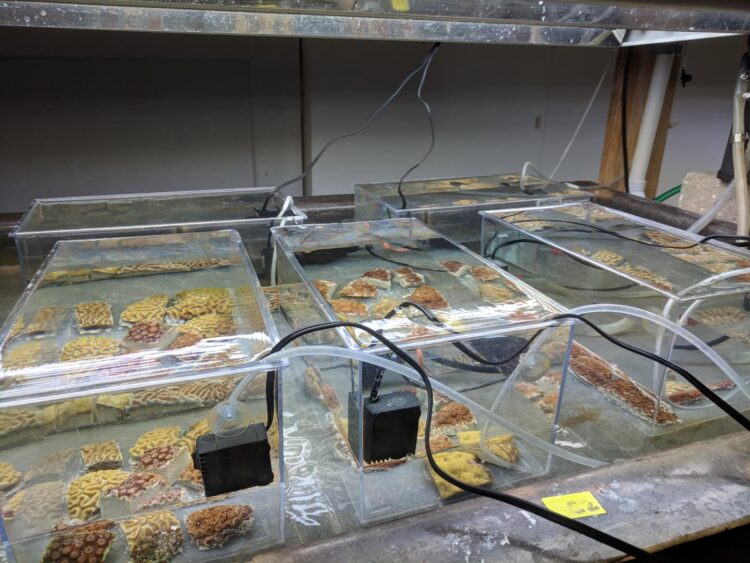New research shows that pulses of cooler deep water reduced heat stress responses in corals

Credit: Yvonne Sawall
The risk of severe coral bleaching–a condition in which corals lose their symbiotic algae, called zooxanthellae–is five times more frequent today than it was forty years ago. Coral bleaching is a direct result of global warming, where rising temperatures cause marine heat waves, which place stress on the living coral animals, as well as the photosynthetic algae on which they depend for energy. This heat stress causes the algae to malfunction, at which point they are expelled by the corals, causing the organisms to lose their color and appear white (thus the term coral “bleaching”).
Due to the increasing pressure of global warming on highly valuable coral reef ecosystems, scientists are now seeking novel ways to decrease heat stress on corals. A new study led by Yvonne Sawall, assistant scientist at the Bermuda Institute of Ocean Sciences (BIOS), is showing potential for the use of artificial upwelling (AU)–or the application of cooler, deep water–as a way to mitigate the thermal stress on corals.
Upwelling is a natural oceanographic process in which winds push surfaces waters away from a region, such as a coastline, allowing the uplift of deep, cold waters to the surface. These waters are typically rich in nutrients and form the basis of productive marine ecosystems which, in turn, support many of the world’s most important commercial fisheries. AU is a geoengineering method that uses pumps to bring deep-ocean water to the surface. Originally designed to fertilize surface waters to increase fish stocks or carbon dioxide (CO2) sequestration, AU may also be used to cool surface waters during heat waves, if the depth and intensity of AU is chosen wisely.
“Ocean warming and the occurrence of heat waves will increase in frequency and intensity over the coming decades and we need to consider rather unconventional solutions to protect and sustain coral reefs,” Sawall said.
With funding from the German Research Foundation (DFG, with principal investigator Yuming Feng, doctoral student at the GEOMAR Helmholtz Center for Ocean Research in Kiel, Germany), Sawall and her co-authors studied three shallow water reef building coral species in Bermuda: Montastrea cavernosa (great star coral), Porites astreoides (mustard hill coral), and Pseododiploria strigosa (symmetrical brain coral).
After collecting fragments from living corals on Sea Venture Shoals, Bermuda, at a depth of 15 feet (5 meters), the research team placed the colonies in aquaria at BIOS to test the effects of deep cold-water pulses (AU) during thermal stress. Fragments were treated with various temperatures conditions, including an average summer temperature (28°C); a heat stress treatment known to cause bleaching (31°C); a heat stress treatment with daily pulses of cooler deep water from a depth of 164 feet (50 m, 24°C); and a heat stress treatment with daily pulses of cooler deep water from a depth of 300 feet (100 m, 20°C). The deep water used for the experiment was collected aboard the BIOS-operated research vessel (R/V) Atlantic Explorer approximately 2 miles (3 km) off the Bermuda Platform.
The results of the study showed that even short intrusions of cooler deep water (less than two hours per day) can mitigate thermal stress in corals. This was evident in higher levels of zooxanthellae performance in corals exposed to heat stress and AU compared to corals that were exposed to heat stress only, and this effect seemed stronger in the simulations with water from deeper depths.
“Our study shows the potential benefits of pulsed AU during heat waves. The next steps now are to find suitable AU settings to maximize the benefits, while minimizing potential harmful side effects of AU for corals and the ecosystem they support,” Sawall said.
The Bermuda Institute of Ocean Sciences is an independent U.S. not-for-profit marine research and educational organization with 501(c)(3) status and a Bermuda Registered Charity (#116).
###
Media Contact
Ali Hochberg
[email protected]
Original Source
http://www.
Related Journal Article
http://dx.





